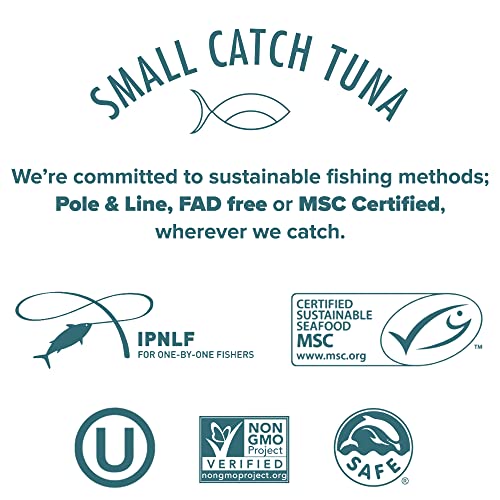Genova Yellowfin Tuna in Olive Oil, 5-Ounce (Pack of 6)
Category: genova yellowfin tuna in olive oil

Title: Impact of Climate Change on Global Biodiversity
Introduction: Climate change is a pressing global issue that profoundly affects biodiversity. The alteration in temperature patterns, changes in precipitation, and other climatic variations have significant consequences for the distribution and abundance of plant and animal species. Understanding the impact of climate change on biodiversity is crucial for developing effective conservation strategies. This article explores the consequences of climate change on different ecosystems and proposes measures to mitigate its negative effects.
Effects on Terrestrial Ecosystems: 1. Shifting Species Distributions: Changing climatic conditions force species to migrate or adapt in their current habitats, leading to shifts in their distribution patterns. Species that cannot keep up with the pace of climate change face a higher risk of extinction.
- Loss of Habitat and Fragmentation: Rising sea levels and increased frequency of extreme weather events result in the loss and fragmentation of terrestrial habitats. This impacts various species that rely on specific ecological niches, disrupting ecological balance.
Effects on Marine Ecosystems: 1. Coral Bleaching: Increasing ocean temperatures cause coral reefs to experience bleaching events, leading to their deterioration and loss of biodiversity. The decline of coral reefs affects marine ecosystems and the fisheries industry.
- Ocean Acidification: Elevated carbon dioxide levels in the atmosphere result in ocean acidification. This negatively affects shell-forming marine organisms, including mollusks and coral reefs, posing significant threats to marine biodiversity.
Mitigation Measures: 1. Conservation of Natural Habitats: Protecting and restoring natural habitats is crucial for preserving biodiversity. This can be done through the establishment and management of protected areas and wildlife corridors.
- Sustainable Resource Management: Implementing sustainable practices in the agriculture, forestry, and fisheries sectors can help reduce habitat destruction, species decline, and maintain ecological balance.
Conclusion: Climate change has substantial consequences for global biodiversity. Terrestrial and marine ecosystems experience shifting distributions, habitat loss, and fragmentation due to changing climatic conditions. However, by implementing effective conservation strategies, such as habitat preservation and sustainable resource management, the negative impacts of climate change on biodiversity can be mitigated.
product information:
| Attribute | Value | ||||
|---|---|---|---|---|---|
| is_discontinued_by_manufacturer | No | ||||
| package_dimensions | 7 x 4 x 3.6 inches; 5 ounces | ||||
| best_sellers_rank | #337,773 in Grocery & Gourmet Food (See Top 100 in Grocery & Gourmet Food) #652 in Packaged Tuna Fish | ||||
| customer_reviews |
|


















